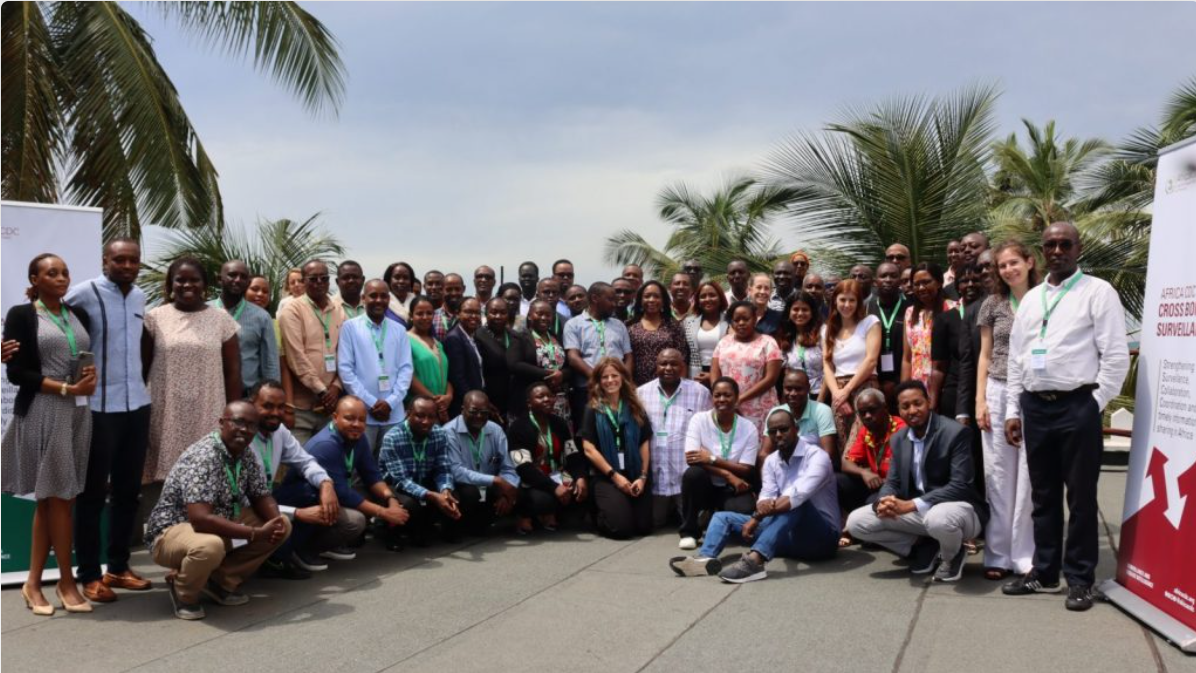The cross-border RCCE readiness training for Eastern Africa was conducted from 15-19 April 2024 in Mombasa, Kenya. It was born out of the lessons learned from past public health emergencies in East and Southern Africa, highlighting the crucial need for robust national and cross-border collaboration. Recent events, such as the cholera outbreaks and a One Health Simulation Exercise, underscored the importance of coordinated RCCE efforts to improve community engagement and trust during crises. The training was attended by:
- Ministry of Health staff (Surveillance, Case Management, Infection Prevention and Control (IPC), RCCE and Points of Entry)
- Seven African Union (AU) member states (MS); Ethiopia, Kenya, Rwanda, Somalia, South Sudan, Tanzania and Uganda
- Participants from Red Cross and Red Crescent National Societies, WHO and UNICEF from these seven countries

Image credits: Africa CDC
Training Highlights
1. Scenario-Based Learning: Participants engaged in a fictitious outbreak scenario involving a tick-borne viral hemorrhagic fever originating from a football tournament in a fictional country. This innovative approach facilitated practical learning and cross-border collaboration.
2. Key Objectives:
- Develop and pilot a regional RCCE training package.
- Strengthen RCCE readiness for outbreaks and humanitarian crises.
- Create SOPs and action plans for cross-border coordination.
- Promote the use of data to drive community-centered outbreak responses.
3. Modules and Content: The training included modules on needs assessment, coordination, community feedback, social science, community participation, and monitoring and evaluation. Each module emphasized the importance of cross-border cooperation and practical application of RCCE principles.
4. Cross-Border Commitments: Participants collectively developed strategic cross-border commitments, focusing on principles and strategies for community-centered outbreak preparedness, data sharing mechanisms, and action-tracking platforms.
Recommendations and Next Steps
The training concluded with several immediate and medium-term recommendations:
- Distribute e-certificates and finalize training content.
- Develop an implementation plan for cross-border commitments.
- Organize quarterly check-in meetings and webinars to review progress and share lessons learned.
The training received overwhelmingly positive feedback, with participants appreciating the scenario-based approach, interactive sessions, and the focus on practical application. The evaluation highlighted significant knowledge gains, particularly in community participation and feedback mechanisms.
The cross-border RCCE readiness training in Mombasa marks a significant step towards enhancing public health emergency preparedness in Eastern Africa. By fostering collaboration, data-driven approaches, and community-centered responses, the training has equipped participants with the tools and knowledge to effectively manage future outbreaks and humanitarian crises.